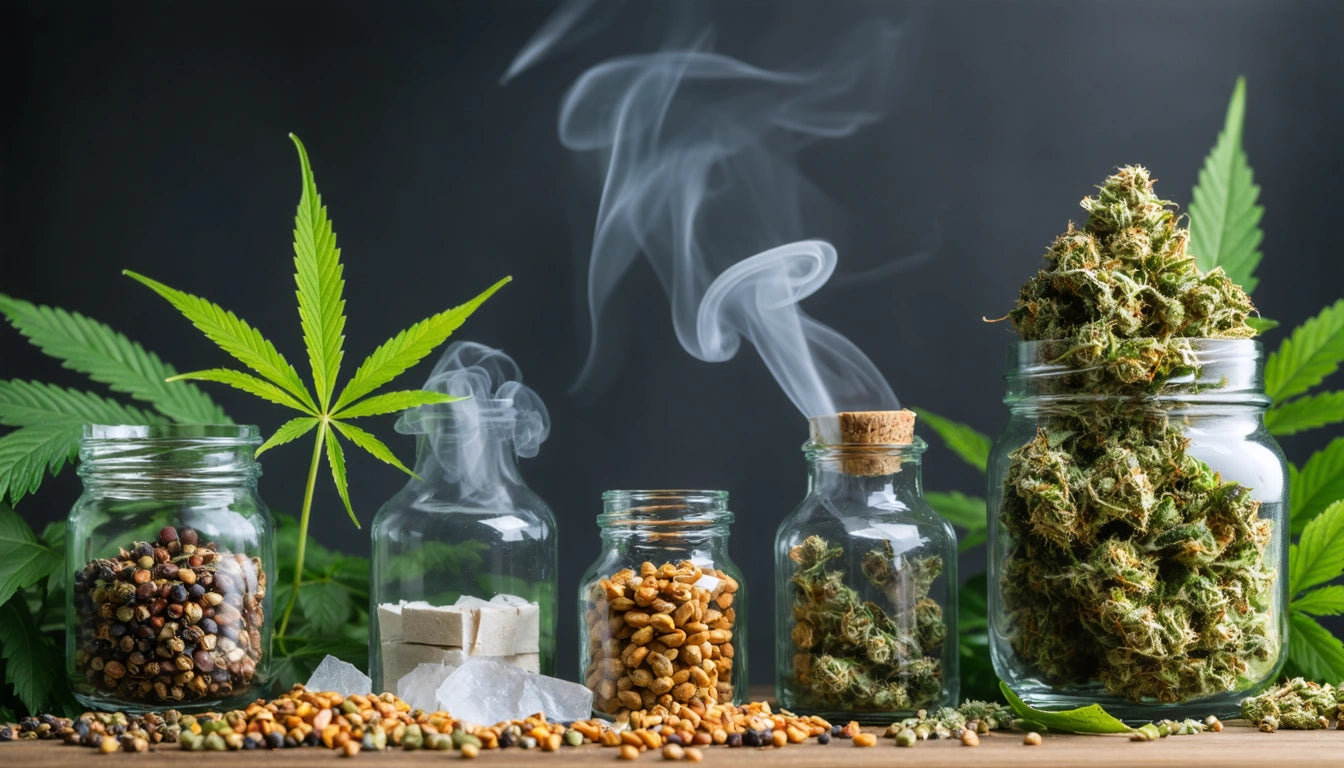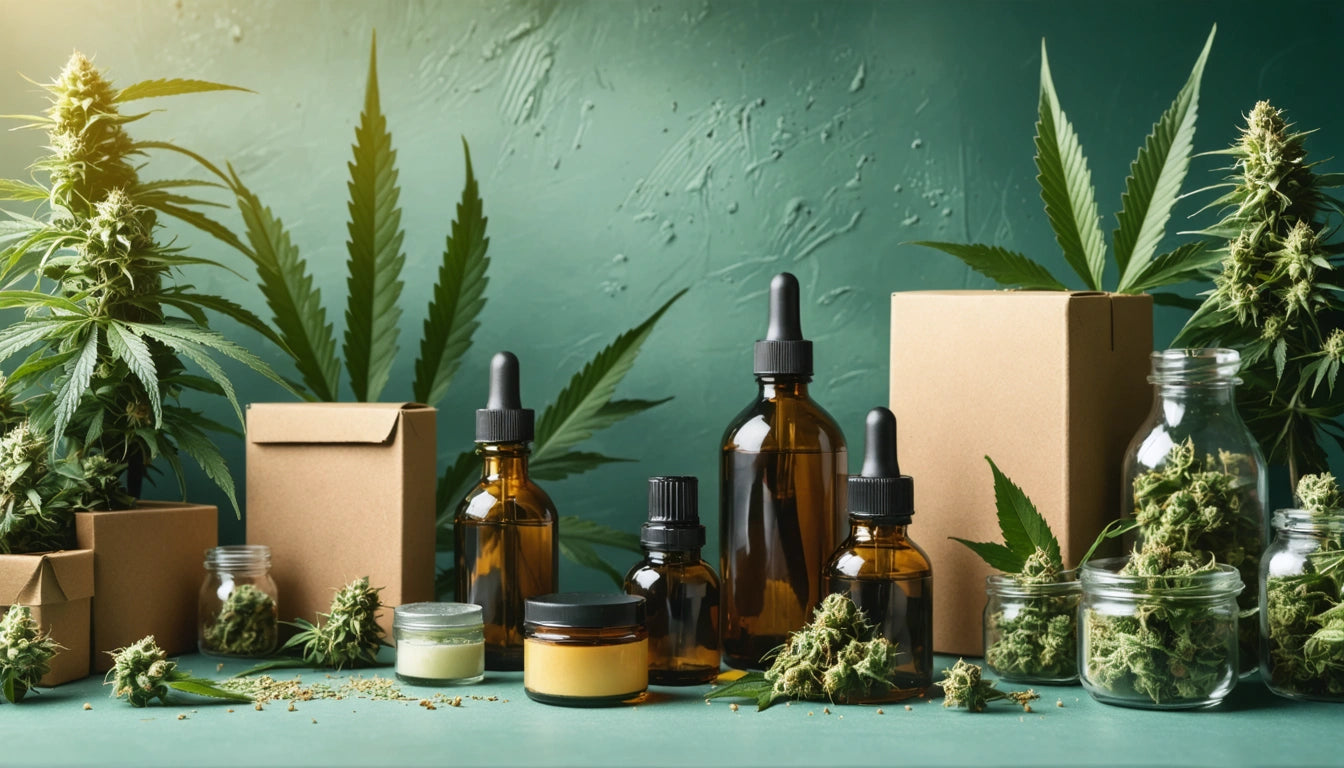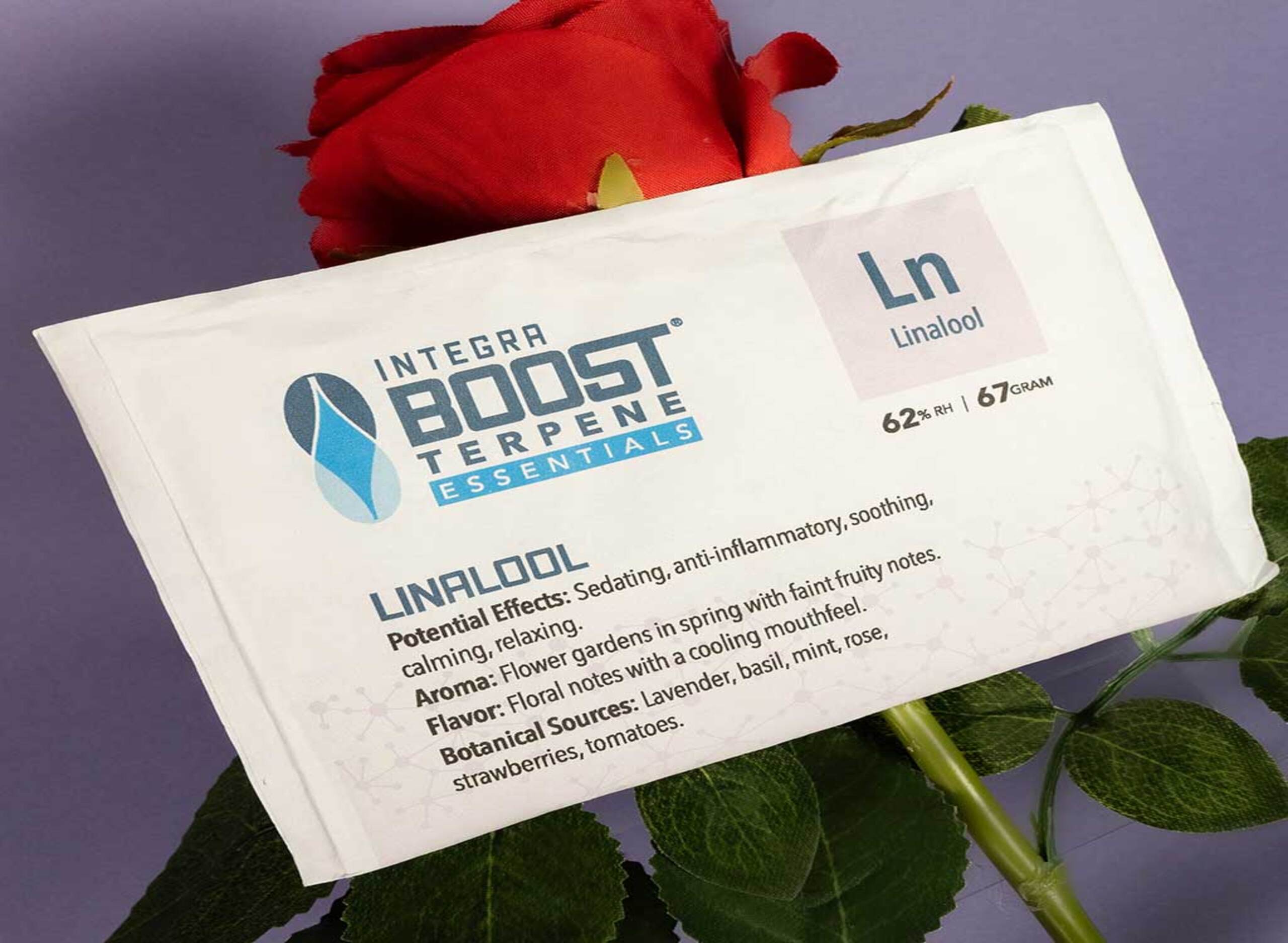Table of Contents
Understanding how quickly cannabis effects begin and how long they last is crucial for both medical patients and recreational users. Different consumption methods create dramatically different experiences, primarily due to how cannabinoids enter the bloodstream. This comprehensive guide explores the science behind onset times and duration across various consumption methods.
Understanding Cannabis Absorption: The Basics
Cannabis contains over 100 cannabinoids, with THC and CBD being the most well-known. These compounds interact with the body's endocannabinoid system, but their journey from consumption to effect varies significantly based on the method used. Bioavailability (the proportion of a substance that enters circulation) plays a crucial role in determining both onset time and effect duration.
Inhalation Methods: Rapid Onset, Shorter Duration
Inhalation delivers cannabinoids directly to the lungs, where they rapidly enter the bloodstream and cross the blood-brain barrier, producing quick effects.
Smoking
When cannabis flower is smoked, effects typically begin within:
- Onset: 2-10 minutes
- Peak effects: 15-30 minutes
- Duration: 1-3 hours
Smoking offers immediate relief but shorter duration, making it suitable for acute symptom management. However, combustion creates potentially harmful byproducts. For those new to smoking, these tips for first-time users can help ensure a positive experience.
The freshness of your flower significantly impacts the smoking experience. Using humidity control packs in your storage containers helps maintain optimal moisture levels, preserving terpenes and preventing harsh, dry hits that can affect onset time perception.
Vaporizing
Vaporizing heats cannabis to release cannabinoids without combustion:
- Onset: 2-5 minutes
- Peak effects: 10-20 minutes
- Duration: 1-3 hours
Vaporizing offers slightly faster onset than smoking with similar duration. Many users report cleaner effects and fewer respiratory irritants compared to smoking. The market offers various devices for vaping cannabis safely, from portable pens to desktop units.
Dabbing
Dabbing involves flash-vaporizing concentrates:
- Onset: Almost immediate (5-30 seconds)
- Peak effects: 5-15 minutes
- Duration: 1-3 hours
This method provides the fastest onset and most intense effects due to high cannabinoid concentration. Understanding dabbing safety is essential due to its potency.
Oral Consumption: Delayed Onset, Extended Duration
Oral methods involve processing cannabinoids through the digestive system and liver, creating a delayed but prolonged experience.
Edibles
Cannabis-infused food and beverages:
- Onset: 30-120 minutes
- Peak effects: 2-4 hours
- Duration: 4-8+ hours
Edibles create the longest-lasting effects but are challenging to dose precisely due to delayed onset. When THC passes through the liver, it converts to 11-hydroxy-THC, which is more potent and produces stronger effects than inhaled methods.
Tinctures
Alcohol or oil-based extracts administered under the tongue:
- Sublingual absorption onset: 15-45 minutes
- Swallowed portion onset: 45-120 minutes
- Duration: 4-6 hours
Tinctures offer a middle ground between inhalation and edibles. When held under the tongue, some cannabinoids absorb directly into the bloodstream, while the swallowed portion processes like an edible.
Other Consumption Methods
Topicals
Lotions, balms, and creams applied to the skin:
- Onset: 15-45 minutes
- Duration: 2-4 hours
Topicals typically don't produce psychoactive effects as cannabinoids don't enter the bloodstream in significant amounts. They're primarily used for localized relief.
Transdermal
Patches designed to deliver cannabinoids through the skin into the bloodstream:
- Onset: 1-2 hours
- Duration: Up to 12 hours
Unlike topicals, transdermal applications can produce systemic effects as cannabinoids enter the bloodstream directly, bypassing the digestive system and liver.
Choosing the Right Method for Your Needs
Selecting the appropriate consumption method depends on your specific requirements:
- Immediate relief: Inhalation methods (smoking, vaping, dabbing)
- Long-lasting effects: Edibles, transdermal patches
- Controlled, moderate experience: Tinctures
- Localized relief without intoxication: Topicals
For those seeking precise control, microdosing techniques can be applied to most consumption methods, allowing for minimal effective doses.
Optimizing Your Cannabis Experience Based on Timing
Understanding onset and duration allows users to strategically plan their cannabis consumption. For extended relief, some users practice layering different consumption methods. For example, using a fast-acting inhalation method for immediate relief while waiting for an edible to take effect.
Each consumption method offers distinct advantages and disadvantages beyond timing factors. Personal metabolism, tolerance, and product potency all influence individual experiences, making it essential to start with low doses when trying new methods.
By matching the consumption method to your timing needs, tolerance level, and desired effects, you can create a more predictable, effective cannabis experience while minimizing unwanted side effects.











Leave a comment
All comments are moderated before being published.
This site is protected by hCaptcha and the hCaptcha Privacy Policy and Terms of Service apply.